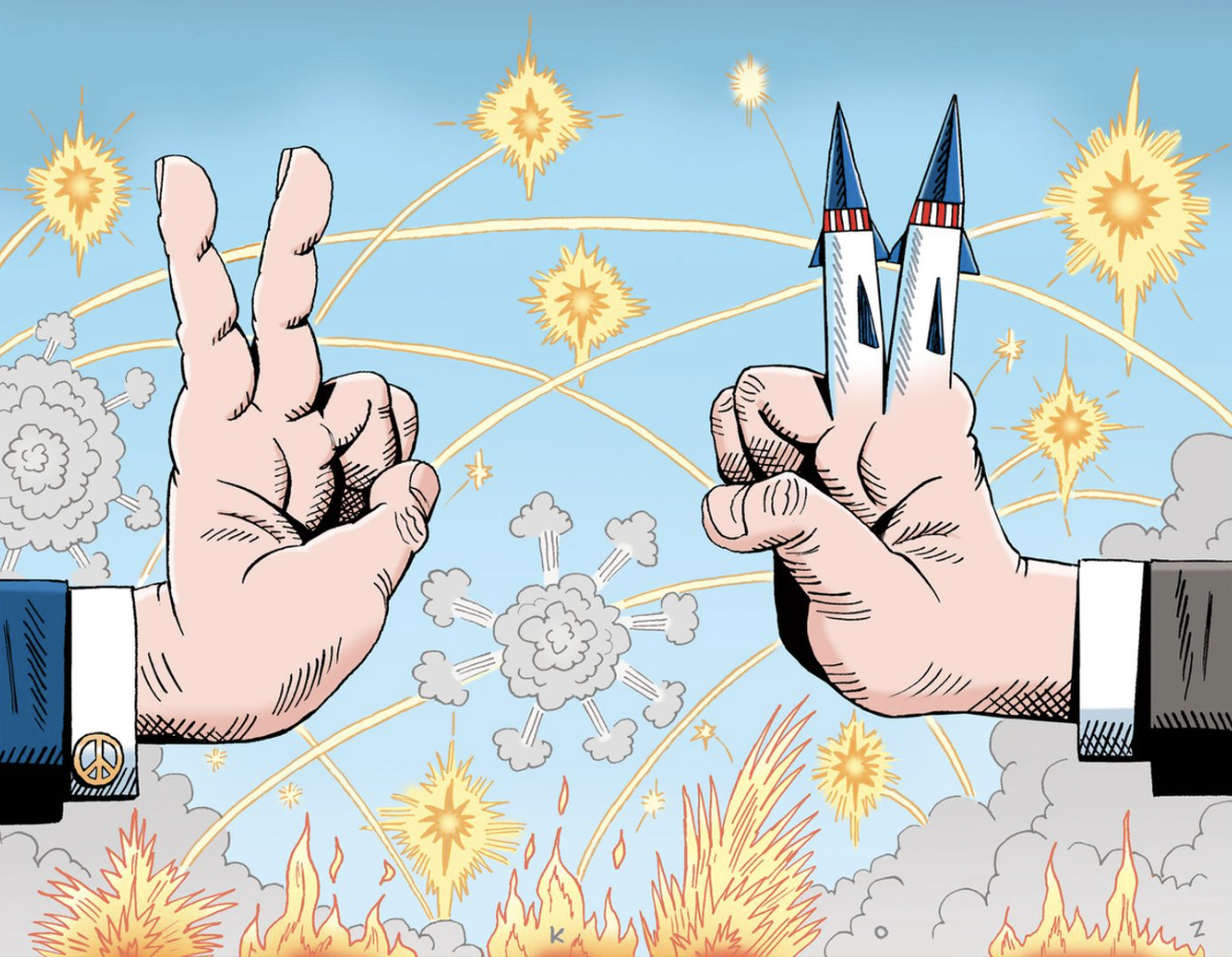By: Jakub Grygiel – wsj.com – November 1, 2023
Simultaneous crises are threatening global stability and taxing U.S. power and attention. Russia’s war in Ukraine, Hamas and Iran’s aggression against Israel and China’s threats in the Pacific are all products of the grand ambitions of evil imperial regimes.
The first is that leaders are responsible for wars and these countries are our rivals only because of their bad leaders. Secretary of State Antony Blinken said of the Ukraine invasion at the United Nations Security Council in September 2022: “One man chose this war. And one man can end it.”
But the war isn’t only Vladimir Putin’s; it is Russia’s war. In a June 2022 poll, 75% of Russians either definitely or mostly supported the actions of Russia’s military forces. One respondent asserted that “war is the locomotive of history” and that it was time for Russia to assert its independence. The Russian Orthodox Church is an instigator of the war and has formed a deep culture of Russian nationalism and imperial entitlement that extends beyond the Kremlin. The result is that Russia can incur massive casualties—recently around 1,000 a day, according to some estimates—without much political backlash.
The hostility of Russia, Iran, China and even Hamas can have deep cultural roots and popular support that allows these actors to engage in lengthy and devastating conflicts. Removing a bad leader or regime doesn’t necessarily turn an enemy into a responsible actor.
The second illusion is that international organizations and global governance can overcome contentious national and regional politics. Because these institutions are the sources of international order for many Western policy makers, the primary objective of their diplomacy is to bring more states, democracies or not, under their pacifying umbrella. President Franklin D. Roosevelt hoped the Soviet Union would behave better once it joined the United Nations and was willing to postpone hard negotiations with Moscow to have it participate in the founding of the U.N. Western leaders hoped China would become a responsible stakeholder in the global order once a member of institutions such as the World Trade Organization.
But like Russia, a permanent member of the U.N. Security Council, China hasn’t become a benign geopolitical actor after participating for more than two decades in the WTO. The formative power of international institutions has been greatly exaggerated, and the grand strategy based on it has left the West unprepared for the hard competition, including war, in front of us.
The third illusion is that greater trade and wealth produce peace. For decades German foreign policy has followed the principle of “change through trade.” Berlin thought trading with Russia, China and other bad actors would ease their hostility and turn them into reliable partners. The U.S. thought that trade with China would gradually alter Beijing’s incentives by creating a peace-loving middle class and deeper diplomatic ties.
The Western bet that expanding trade would overcome ideological differences and political rivalries was wrong. States engage in trade to become wealthy and competitive, not peaceful. Often they want to be wealthy so they can attack their enemies and dominate others. As Russia has done with Europe since Peter the Great, China now is pursuing more trade with the U.S. to gain an advantage over its commercial partner.
Trade also fosters the desire for power. Many states that traded and grew economically as a result developed large power-projection capabilities, most often through navies. Venice in the 11th century, Britain in the 17th, Germany and the U.S. at the turn of the 20th—each backed its commerce with a powerful navy, leading to great clashes.
Military might, not interdependence, gives states the ability to act in their best interests without constraints imposed by other powers. Our rivals have been arming while the West, Europe especially, hoped that trade would render military capabilities useless.
Deep enmities can’t be transcended through leadership changes, international organizations or trade. They can be checked, and when necessary defeated, only through military power.
To see this article in its entirety and to subscribe to other articles like it, please choose to read more.
 Listen Online
Listen Online Watch Online
Watch Online Find a Station in Your Area
Find a Station in Your Area









 Listen Now
Listen Now Watch Online
Watch Online
